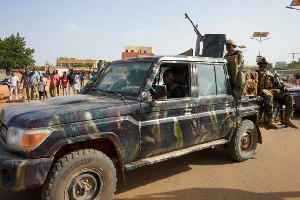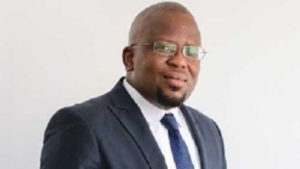General News of Monday, 30 March 2015
Source: reuters.com
U.S., Britain concerned about Nigeria vote count
The United States and Britain said there were worrying signs of political interference in the counting of Nigeria's votes on Monday as results from the closest election since the end of military rule in 1999 started to trickle in.
The weekend vote was marred by confusion, technical glitches, arguments and occasional violence but in many places proved to be less chaotic than previous elections in Africa's most populous nation and biggest economy.
President Goodluck Jonathan against former military ruler Muhammadu Buhari were seeking the votes of an electorate divided along ethnic, regional and religious lines in the nation of 170 million.
Even before preliminary tallies were recorded, the opposition All Progressives Congress (APC) rejected the outcome in Rivers state, headquarters of Africa's biggest oil industry, and denounced the vote there as "a sham and a charade".
The INEC election commission said first results from 120,000 polling stations nationwide should be available on Sunday evening but later pushed this back by 24 hours.
"So far, we have seen no evidence of systemic manipulation of the process," U.S. Secretary of State John Kerry and British Foreign Secretary Philip Hammond said in a joint statement.
"But there are disturbing indications that the collation process - where the votes are finally counted - may be subject to deliberate political interference," they added.
The U.S. National Democratic Institute (NDI), which promotes democracy and open government, praised the election despite the hiccups.
"Nigerian voters conducted themselves in a peaceful and orderly manner on election day," it said. NDI official Christopher Fomunyoh said the group saw no evidence of the military interfering in the poll, as many had feared.
Turnout among the 56.7 million registered voters appears to have been high.
All eyes are now on the collation process, in which historically figures have either been fiddled or sometimes completely made up.
Early results from some of Nigeria's 36 states had come in by midday, but not enough to indicate any clear front-runner.
In the northern battleground state of Kano, final results gave Buhari 89 percent of the vote. In southern Rivers, where the result is fiercely contested, results showed a Jonathan win by 95 percent.
"We are confident of victory," PDP spokesman Femi Fani-Kayode told journalists, without providing evidence. "Any attempt to manipulate figures or to rig us out from any quarter will be firmly resisted."
COLLATION CONCERNS
The tensions and alleged irregularities increase the chances of a disputed outcome and a repeat of the violence that erupted after the last election in 2011, when 800 people were killed and 65,000 displaced in the mainly Muslim north.
World powers and international investors are watching the conduct of the poll closely to see whether one of Africa's most important states can improve its patchy record.
Fitch cut Nigeria's credit outlook to negative on early on Monday, but kept its BB- rating, citing the political uncertainty.
However, the stock market rose slightly during the day and there were no movements in the currency, the naira, suggesting most Nigerian investors are not too worried.
In Port Harcourt, protests outside the election commission offices rumbled into a second day, with police firing tear gas to disperse at least 100 female APC demonstrators, a Reuters reporter said.
A policeman at the scene said the women were disturbing the peace. "Their intention was to destroy INEC materials," he told Reuters.
In a sign the opposition could challenge results elsewhere, the APC governor of the southern Imo state, Rochas Okorocha, denounced the conduct of the election in his region and accused the military of meddling in the result.
In Bauchi state in the volatile Middle Belt, where Nigeria's largely Christian south and mostly Muslim north meet, hundreds of youths gathered outside the INEC offices shouting about rigging before soldiers dispersed them with warning shots.
In Kaduna, the northern city worst-hit by the 2011 post-election violence, the streets were virtually devoid of traffic and many shops were shuttered.
In the commercial capital Lagos, streets were unusually quiet and with few signs of the paralyzing traffic jams that people face on normal days.












